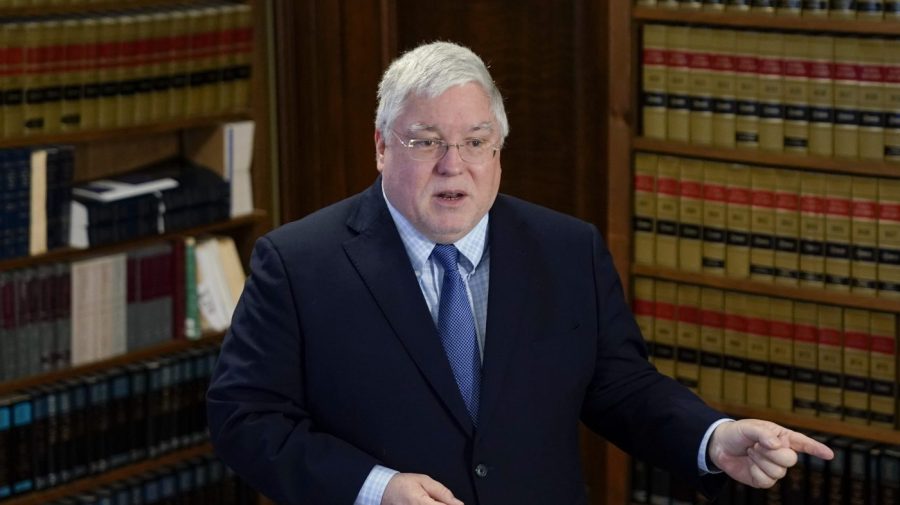
West Virginia plans to ask the U.S. Supreme Court to hear for a second time a case over the state’s restrictions on transgender student-athletes, its attorney general said Wednesday.
“This is a significant case to bring to the Supreme Court, and it will potentially set precedent for the entire country,” West Virginia Attorney General Patrick Morrisey, a Republican, told reporters Wednesday at a news conference at the state capitol in Charleston, W.Va.
West Virginia will be filing its appeal to the Supreme Court sometime “over the next month,” said Morrisey, who is currently campaigning for governor of the state. “We want to make sure we’re going to time our filing to maximize the chance this case is going to be heard and, most importantly, that we will win,” he said.
West Virginia in 2021 became the seventh state — and the sixth that year — to pass a law barring transgender women and girls from competing on female sports teams. The state’s Save Women’s Sports Act requires public schools and colleges to designate participation in sports based on “biological sex” rather than gender identity.
Twenty-four states now have laws in place that prevent student-athletes from competing in accordance with their gender identity, though not all of them are enforceable, according to the Movement Advancement Project, a nonprofit that tracks LGBTQ laws.
A federal appeals court last week blocked West Virginia from enforcing its law, siding with a transgender teenager who sued the state after she was barred from trying out for the girls’ cross-country and track teams at her school. The 4th U.S. Circuit Court of Appeals in a 2-1 ruling said the state’s law violates Title IX, the federal civil rights law prohibiting sex-based discrimination in schools and education programs that receive federal funding.
The Biden administration last week issued new rules cementing protections for LGBTQ students under Title IX, in part by expanding the law’s definition of sex discrimination to include sexual orientation and gender identity. The administration has yet to finalize a separate rule governing athletics eligibility.
Morrisey, who argued the case on behalf of the state, on Wednesday said the circuit court’s logic in determining that the law discriminates against transgender athletes is “flawed.”
“Somehow, defying logic, the 4th Circuit majority still concluded that this law was targeted at transgender students. They are wrong,” he said.
Becky Pepper-Jackson, the 13-year-old at the center of the case, has been allowed to participate on her school’s girls’ cross-country team since West Virginia’s law was blocked in February 2023. One of her classmates joined Morrisey in supporting the state’s transgender athlete ban on Wednesday.
The American Civil Liberties Union (ACLU), the ACLU of West Virginia and Lambda Legal, the organizations representing Pepper-Jackson in court, did not immediately return a request for comment.
In a statement following Morrisey’s announcement, Fairness West Virginia, a statewide LGBTQ advocacy group, said law’s like West Virginia’s “contribute to a hostile environment where trans youth are more likely to experience harassment, bullying and discrimination.”
It is unclear whether the Supreme Court will take up the state’s case once its appeal is filed — the court last year declined to intervene on the law. Justices Clarence Thomas and Samuel Alito, the court’s leading conservatives, said they would have heard the case, which they said “concerns an important issue that this Court is likely to be required to address in the near future.”
Copyright 2024 Nexstar Media Inc. All rights reserved. This material may not be published, broadcast, rewritten, or redistributed.














